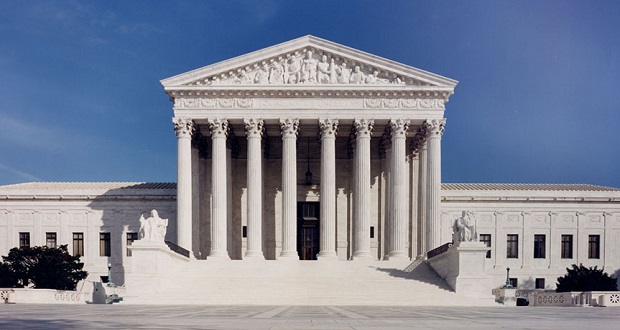
The U.S. Supreme Court began a new term earlier this month, and the upcoming docket includes a number of cases with workplace implications.
Cases with direct impact on employment law raise issues of overtime pay and jurisdiction for employee lawsuits. Other cases involving religious freedoms and affirmative action could have a trickle-down effect on workplace practices.
Here are some of the key cases the Supreme Court is slated to hear this fall:
Overtime exemptions: In Helix Energy Solutions Group v. Hewitt, the Court will consider whether a supervisor making more than $200,000 a year is entitled to overtime pay under the federal Fair Labor Standards Act.
Helix argued that former employee Michael Hewitt was exempt from overtime pay because he met the threshold for a “highly compensated” worker. The U.S. 5th Circuit Court of Appeals determined that metric didn’t apply because he was compensated using a day rate, not a salary.
The decision could impact employers who pay daily rates, particularly those in the oil and gas industry, and force them to restructure employee compensation plans.
Jurisdiction issues: In Mallory v. Norfolk Southern Railway, the Court will consider whether employees can “shop” for a favorable state venue when suing their employer.
Mallory, a former railroad worker from Virginia, sued Norfolk Southern in a Pennsylvania court, claiming on-the-job exposure to asbestos and other toxic chemicals caused him to develop cancer. Mallory chose to sue in Pennsylvania even though his alleged exposure lacked any connection to the state.
Mallory’s argument is that under Pennsylvania law, a foreign corporation’s registration to do business in the state constitutes “a sufficient basis of jurisdiction.” The Pennsylvania Supreme Court ruled against him. If the justices rule in favor of Mallory, it means a national company could face litigation in any state where they’re registered to do business.
Affirmative action: The Court will hear cases involving Harvard University and the University of North Carolina (UNC) that address whether colleges can use race as a factor in student admissions.
In the Harvard case, a nonprofit alleges that the university violates the Civil Rights Act by keeping the number of Asian American students artificially low. In the UNC case, the same plaintiff alleges that the university gives unfair preference to certain minority applicants over those who are white and Asian American.
Industry groups and employers have filed amicus briefs urging the Court to uphold the schools’ race-conscious admissions policies, arguing that they rely on schools to provide a diverse slate of graduates. However, analysts suggest that the Court’s ruling may eliminate race from admissions decisions. If that happens, businesses with diversity hiring programs could feel the aftereffects.
LGBTQ rights and religious freedom: In 303 Creative v. Elenis, the Court will consider whether a public-accommodation law violates the free speech clause of the First Amendment.
The suit challenges Colorado’s Anti-Discrimination Act, which prohibits places of public accommodation from denying service (or announcing their intention to deny service) to someone based on race, disability, religion, sexual orientation, and other protected statuses.
The case involves Lorie Smith, a graphic designer who says she serves gay customers but wants to reserve her wedding-related services for heterosexual couples. Smith argues that requiring her to design wedding sites for same-sex couples violates her right to free speech.
The Supreme Court heard a similar case in 2018, Masterpiece Cakeshop v. Colorado Civil Rights Commission. The Court’s ruling in that case was not definitive.
Some analysts predict that the Court will uphold the Colorado law.
At the same time, employers may want to think through how a decision could trickle down into the workplace and impact employee religious exemption claims.
 New England Biz Law Update
New England Biz Law Update
